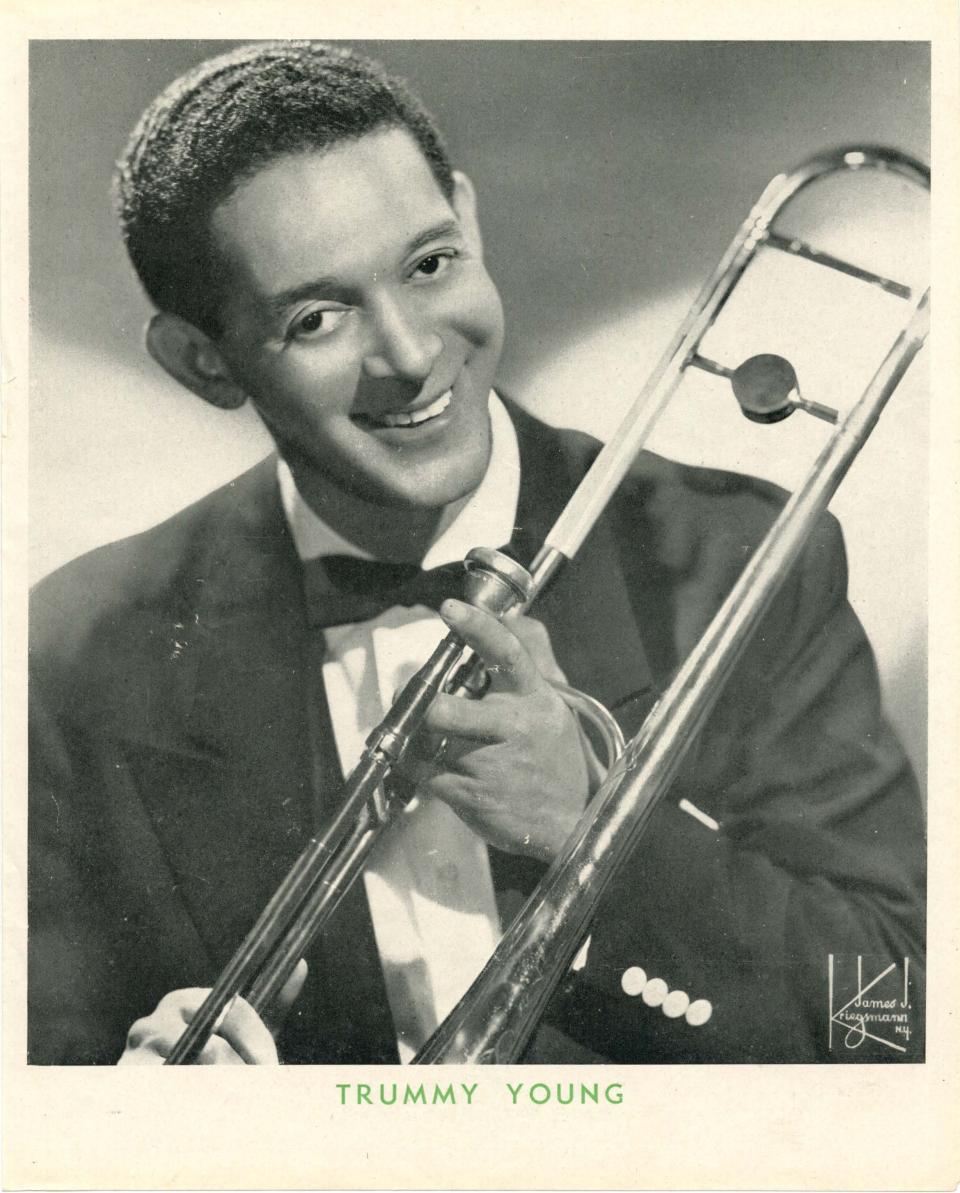Trummy Young
Trummy Young was the very first person I ever interviewed. His kindness and fascinating life captivated me and his interview became the foundation of my passion for capturing the stories of those in the music world, which is now my career, my dream job. As I write this blog, August 2018, it’s likely that I will record my 4,000 interview this fall. And to think, my first interview was when I was just 16 years old and it was with Trummy!
In July 1984, while in high school, I was working for the non-profit community radio station KMAH in Menlo Park, California. Just down the road, in Palo Alto, an annual jazz festival took place and our station’s staff was invited to attend. I believe it was our station engineer, Jeff Cochran, who had the idea to bring a tape recorder along (that simple idea changed my life)! The first musician I met that evening was Phil Harris, the bandleader for the Jack Benny Show. However, Mr. Harris wanted to wait until after the concert for his interview. So I went backstage to wait. Backstage, sitting alone at a small table was Trummy Young. I recognized him based on the photograph in the program and when I approached him, he agreed to the interview and said he had a few minutes then before the next set.
James Trummy Young was born in Savanna, Georgia, and became a well respected and requested jazz trombone player. He worked with such bandleaders as Earl Hines, Jimmie Lunceford, and Louis Armstrong and toured the world with Louis and appeared in movies with the legendary trumpeter. Trummy also performed and recorded with several jazz singers, such as Billie Holiday.
Trummy was a true gentleman, caring, and respectful. He had a way about him that was very endearing, perhaps it was his humility and his dignified disposition. For a teenager who knew his music and loved the bands he performed with during his career, I was in heaven.
Talking to Trummy was a very important moment in my life. I felt ten feet tall that this famous musician was taking the time to answer my questions. He never once treated me like I was just a kid with silly questions, he took me seriously and I learned so much from him. So much! I can’t recall how long the interview was, maybe ten minutes longer than the segment on the NAMM website, however, I played it back so many times in the months ahead that I memorized the entire interview.
I remember he said he was going to visit his daughter in San Jose after the gig and just a month and a week later he passed away there. I was heartsick. In his interview, he said, “I must be catching a cold” which I thought about later. Was that the sickness that led to his death?
Trummy’s interview was a coming of age story for me. A month after he died my best friend, Seth, died. Seth was sick since we were kids, so it wasn’t unexpected but life-changing nonetheless. Trummy, in a way, prepared me to deal with my friends death, and Trummy’s passing did something else that was monumental in my life: Having been one of the last people to interview him, if not the last, I felt a deep responsibility to keep his memory alive. I used his interview in countless radio programs over the years and I was honored to add his interview to the NAMM collection so his legacy can continue. This is the very same approach I have applied to all of those I have interviewed over the years. I use the interviews to remember these people after they pass away so the contributions they made to music and to each of us won’t be forgotten. I recently realized that nearly 700 people I have interviewed have passed away and at first that number makes me sad, but it also makes me proud, proud that I played a role in capturing stories that will help others remember them! You have proven this point by reading this blog about my interview with Trummy.
Thank you Trummy! I won’t forget you.
Click here to view a segment from my first interview with Trummy.
Dan Del Fiorentino
NAMM Music Historian
dand@namm.org
